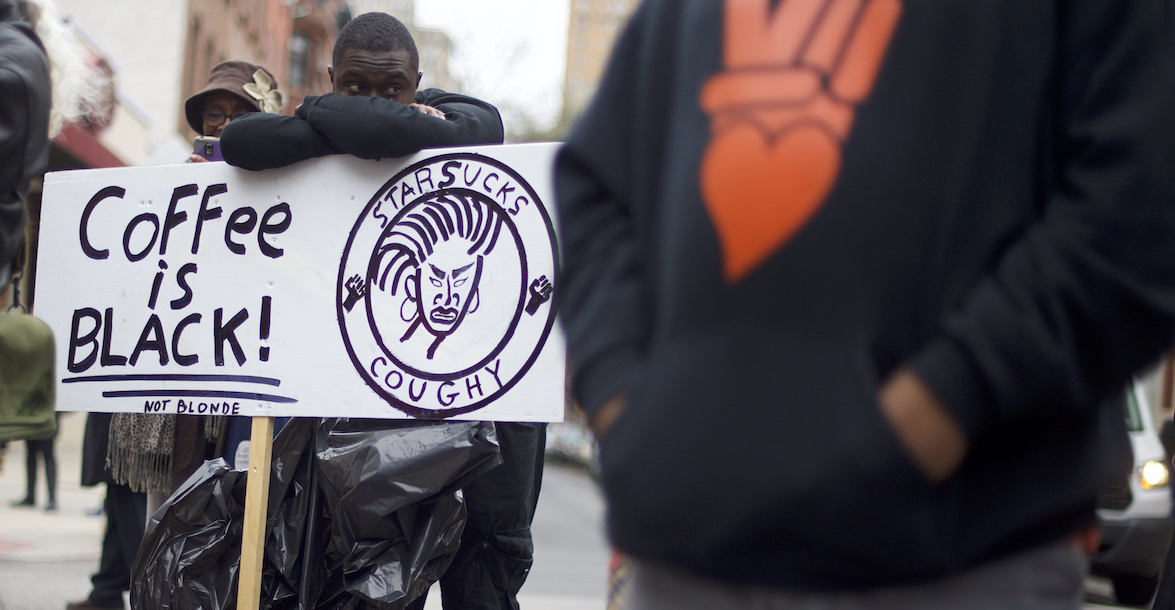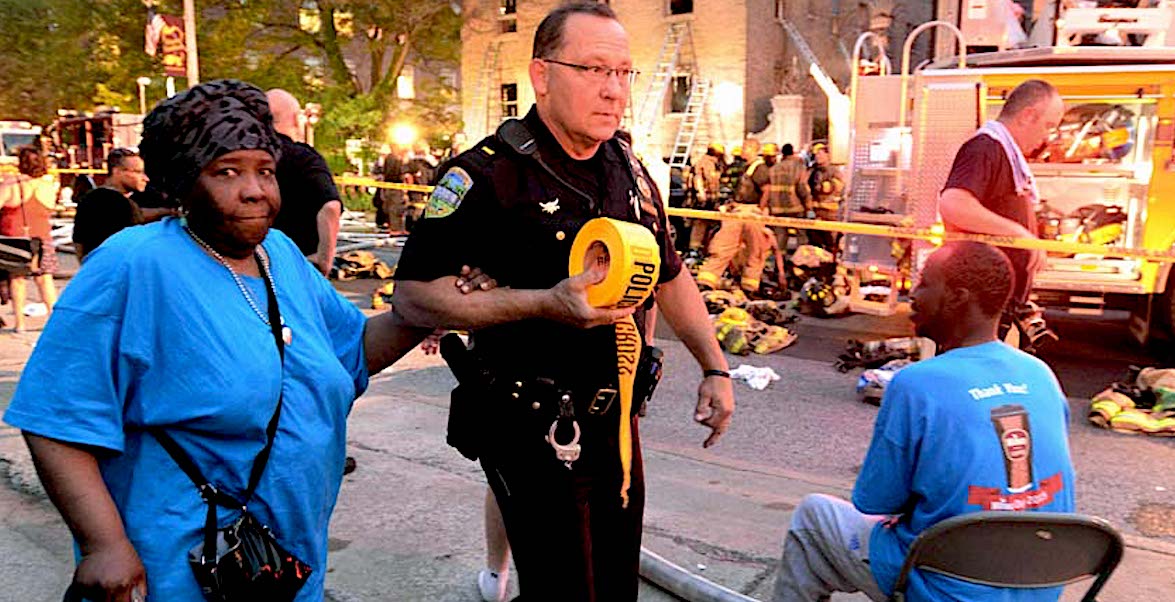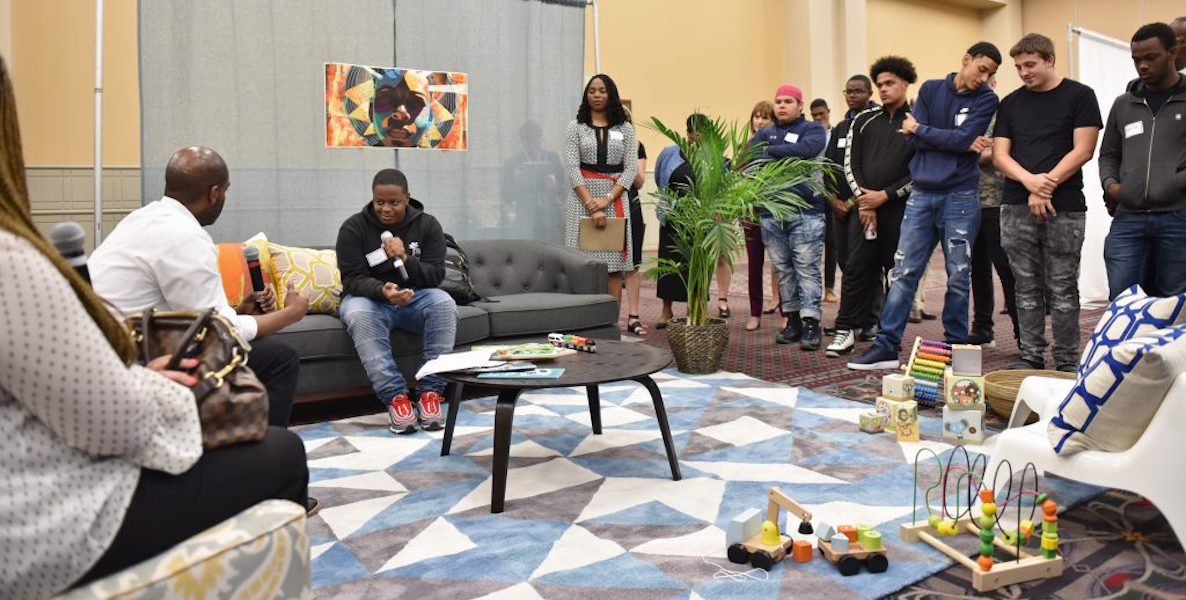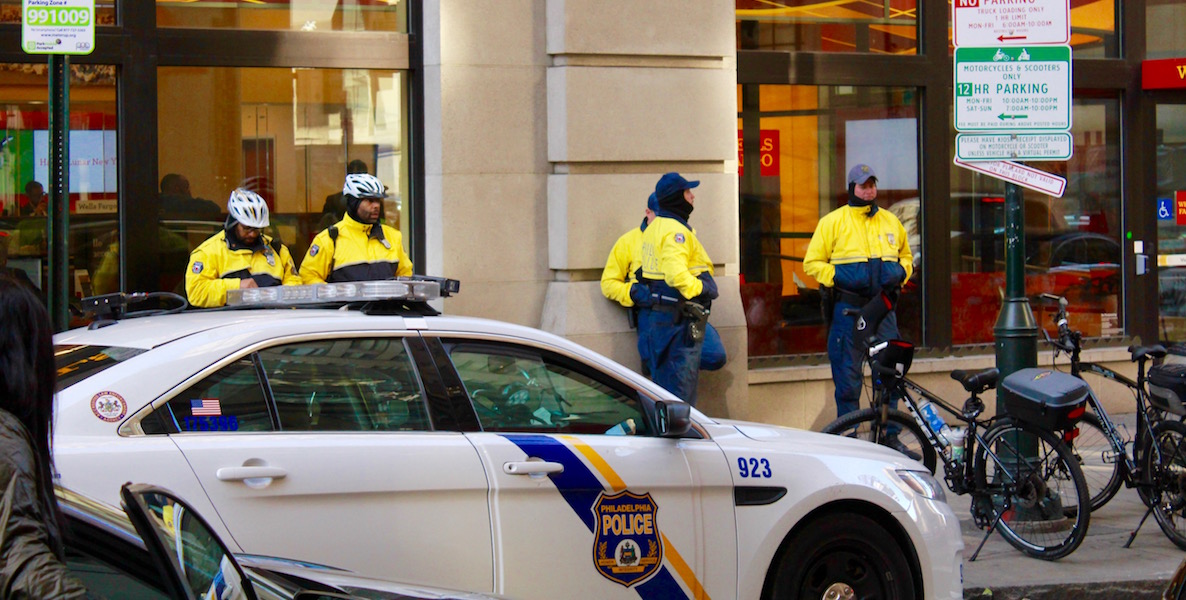Last Friday, hundreds of protestors took to the street outside Philadelphia Police Department headquarters in response to the bombshell report that over 300 local officers have used Facebook to bash immigrants, make racist comments, promote police brutality, and align themselves with militia groups. If you haven’t read the Buzzfeed piece detailing The Plain View Project, a database examining the Facebook accounts of over 3,000 officers in eight departments including ours, you should. It should make you ashamed to be a citizen of Philadelphia. An excerpt:
Of 328 officers in Philadelphia who posted troubling content, more than a third — 139 officers — appeared to have had one or more federal civil rights lawsuits filed against them…Of that group, a hundred ended in settlements or verdicts against them or the city…Philadelphia Officer Christian Fenico, who appears on Facebook under the name Chris Joseph… shared an article that referenced a handcuffed teen whose face was injured after police used a Taser. “Who cares,” he wrote, “kid and mom are scumbags. Good job police.” In a post about refugees, he wrote, “Let them starve to death. I hate every last one of them.”
The city paid $110,000 to settle a case brought by a man who said Fenico came to his home responding to a call and then beat him, breaking his nose, and choking him to unconsciousness even after his partner tried to pull him away, saying, “that’s enough,” the lawsuit said…
Also in Philadelphia, Officer Robert Oakes appeared to belittle domestic abuse, writing, “Oh baby, oh baby, PLEAsE DONT!!!!! stop!!!!! resisting!!!!!” and “no means yes!!!!! They just don’t know it….” The city paid $42,500 to settle two lawsuits that said Oakes had assaulted Philadelphia residents…
The offensive posts were not just by the rank and file. At least 64 of the Philadelphia officers have leadership roles, serving as corporals, sergeants, lieutenants, captains, or inspectors, according to an employment roster from January.
That last part is the one that got me. Instead of police leadership that joins the chorus of hate, we need leadership to start by acknowledging that what we have here is a systemic problem in the form of a corrosive police culture.
When scandals like this one break, we often hear the familiar “few bad apples” refrain. As Nikki Jones, a professor of African American students at the University of California, Berkeley, suggests in the Buzzfeed piece, the sheer number of individuals and the horror of their posts in the Plain View Project database ought to blow up the “bad apples” excuse once and for all.
If you haven’t read the details of the Facebook posts of over 3,000 officers in eight police departments including ours, you should. It should make you ashamed to be a citizen of Philadelphia.
The Mayor, Police Commissioner and members of City Council responded to the news of the Plain View Project with calls for a full and fair investigation, and promptly engaged the Ballard Spahr law firm to conduct it. In addition, 10 of the officers named were removed from duty pending that investigation. That wasn’t enough for the protestors—led by WURD morning show host Solomon Jones—who want all 300-plus officers in the report immediately off the streets.
Yes, those who posted such vitriol ought to be severely punished. As noted criminologist David Kennedy told Buzzfeed, such posts solidify the suspicions of those in distressed communities that “the police are not to be trusted.” But we also need to look at how leadership in other communities has responded to fissures in relations between the police and community, and try to mimic their attempts to achieve racial reconciliation.
![]()
That would entail Commissioner Richard Ross changing the way he responds. Remember, during the Center City Starbucks racial profiling scenario, Ross’s initial instinct was to defend the officers who profiled two African American men who were drinking coffee while black. In this case, Ross promised an investigation and said that his officers should be held to “a higher standard.”
That’s fine, but contrast it to the notes struck by legendary New York City Police Commissioner William Bratton in 2015; his public statements acknowledging the sordid history of police conduct were the first step toward reconciliation:
Some of the worst parts of black history would have been impossible without a perverted, oppressive law and order, too. Slavery, Reconstruction, Jim Crow, lynchings, blockbusting. None of us did these things. None of us were troopers on the bridge at Selma. But it doesn’t matter that these things happened before many of us were even born. What matters is that our history follows us like a second shadow. We can never underestimate the impact these had. The hate, and the injustice, and the lost opportunities—for all of us. But where does this leave us, the police? Because law and order should never be the tool of oppression, not today. And while unfairness and inequality persist, we, as police, face a truth that some others would rather deny…We cannot forget what is behind us, nor the legacies still with us—but we cannot ignore the duty laid before us. As police, that duty is two-fold: As police, we must prevent crime and disorder. As police, we must fix what we’ve done and what we continue to do wrong. It’s ours to set right.
Hiring a law firm to do an investigation is an administrative act, when what we need is moral leadership. We need someone—the Mayor, the Police Commissioner—to echo Bratton and say: It’s ours to set right.
Actually, there is a leader among us who has done just that. Upper Darby Police Superintendent Michael Chitwood remains the most decorated cop in Philly history. I’m old enough to remember him—his nickname was Dirty Harry—during Frank Rizzo’s turbulent policing tenure. Well, of all people, as the Citizen has chronicled, Chitwood has modeled the type of introspective leadership that can pave the way for healing and progress. His 125 cops all go through emotional intelligence, racial sensitivity, and social intelligence training, because he acknowledges that his own kind—cops—are often to blame for incidents on our streets that get out of hand. “We don’t know how to talk to people,” Chitwood said when I reached out to him earlier this week. “We come at people in this macho way, and if I come at you negative, I’m going to get negativity back.”
As for Philly’s Facebook imbroglio, Chitwood was quick to note that his force wasn’t one of the ones studied. “And, who knows, I wouldn’t be shocked if we had some stupid postings out there,” he said. “I mean, we hire from the human race. Stupid is as stupid does as stupid says.”
Hiring a law firm to do an investigation is an administrative act, when what we need is moral leadership. We need someone—the Mayor, the Police Commissioner—to echo former New York City police commissioner William Bratton and say: It’s ours to set right.
For Chitwood, creating a culture of respect between cop and community member is what policing ought to be all about. Just recently, he said, he was involved in a telling case study. He’d gotten a tip that a wanted murderer was holed up at the Summit Motor Inn on City Line. His force alerted the U.S. Marshal, and by the time Chitwood got to the scene, he found that the Marshals had detained two African American bystanders who just happened to be exiting the floor where the suspect was said to be. “Well, they were detained, in a cop car, and no one had explained to them why,” Chitwood said. “I went over and said, ‘Just bear with us,’ and told them what was going on. I thanked them for their patience while their IDs were run through the computer. Now, if I hadn’t done that, they might walk away from that interaction convinced that the cops are assholes. It’s simple, really. We just gotta treat people with dignity and respect.”
![]()
Simple sounding, maybe. But that’s a hard ethos to instill in a paramilitary organization. Not impossible, though, as evidenced by strides made in Cincinnati. After police and community tensions erupted in rioting in 2001, a U.S. District Judge imposed what came to be called The Collaborative Agreement, a multi-stakeholder approach to law enforcement that encouraged residents, especially African Americans, to participate in something called Community Problem-Oriented Policing. Suddenly, cops were working side-by-side with residents in neighborhoods, removing blight. And crime reduction strategies were embraced that didn’t begin with mass arrests of black people. Instead, data would, say, identify an apartment building that was a haven for crime. Rather than stake it out and make arrests, the police would engage community leaders and use environmental design and tenant screening strategies to chip away at the hot spot’s crime rate.
![]()
The Collaborative Agreement’s biggest challenge? Buy-in from the rank-and-file officers, whose first instincts may have been to see such a new approach either as “soft” or as criticism. That’s where leadership can make a difference. You think anyone in Upper Darby is going to call Mike Chitwood soft? Remember, Chitwood’s officers once distributed t-shirts with his face on them with the quote, “Not In My Town, Scumbag!” Dirty Harry Chitwood talking about emotional intelligence carries with it the same type of credibility as anti-Communist Richard Nixon recognizing Red China.
In Cincinnati, the Collaborative Agreement hasn’t been a panacea. But, under it, Cincinnati has seen a 69 percent reduction in police use-of-force incidents, a 42 percent reduction in citizen complaints, and a 56 percent reduction in citizen injuries during encounters with police, according to a University of Cincinnati report. Violent crimes dropped from a high of 4,137 in the year after the riots to 2,352 by 2014.
In the final analysis, I keep coming back to Chitwood’s “Stupid is as stupid does” postulate. It will do no good to fire the worst Facebook offenders if they will just be replaced with yet more Neanderthals. The average American cop’s age is all of 39. That means he or she likely doesn’t know from Jim Crow or the Civil Rights Movement. We don’t just need smarter policing, we need police and political leadership that demands smarter cops, just as Chitwood has focused on in Upper Darby: cops who can practice deescalation, empathy, and collaboration. If Commissioner Ross and Mayor Kenney don’t start talking about that, these offensive Facebook posts may come down, but the bile behind them will continue to infect our city.
Photo by chrisinphilly5448 via Flickr







